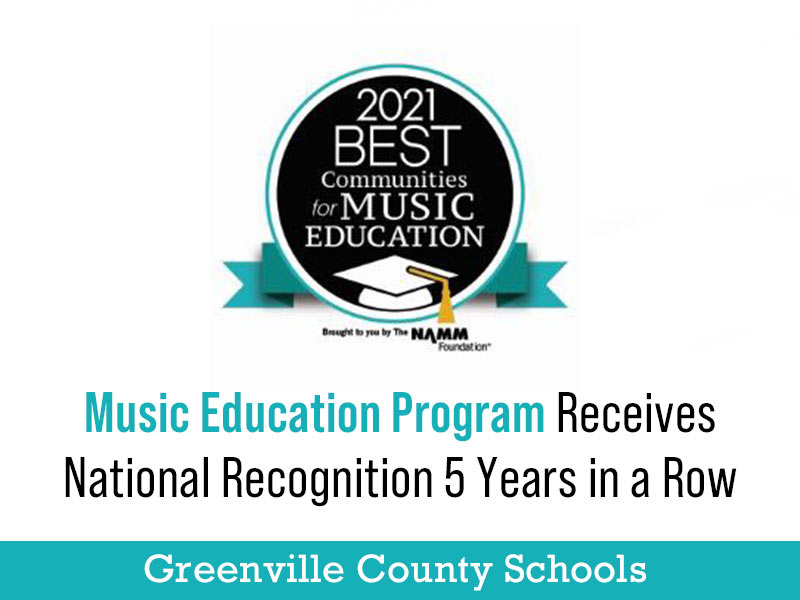Music Education Program Receives National Recognition 5th Year in a Row
Greenville County Schools (GCS) has been honored for the fifth year in a row with the Best Communities for Music Education designation from The NAMM Foundation for its outstanding commitment to music education. Now in its 22nd year, the Best Communities for Music Education designation is awarded to districts that demonstrate outstanding achievement in efforts to provide music access and education to all students.
To qualify for the Best Communities designation, GCS answered detailed questions about funding, graduation requirements, music class participation, instruction time, facilities, support for the music program and community music-making programs. Responses were verified with school officials and reviewed by The Music Research Institute at the University of Kansas.
“Greenville County Schools provides a high-quality, equitable arts education to all students and music is an integral part,” said Bradley Wingate, Director of Visual and Performing Arts. “Being selected as one of the Best Communities for Music Education for the 5th year in a row is a distinct honor for our district. This recognition provides an opportunity to showcase the outstanding support of music programs provided by our district and the amazing work of our students and teachers.”
Since the passage by Congress in 2015 of the Every Student Succeeds Act (ESSA) and a stated emphasis on a well-rounded education, many school districts have re-committed to music and arts education programs and found that in this time of a national pandemic, provides a valuable way to keep students engaged in school. ESSA provides designated funding for well-rounded educational opportunities through Title IV Part A Student Academic Success and Achievement grants. NAMM Foundation research has revealed that these grants are being widely used by school districts to address instructional gaps in access to music and arts education.
Research into music education continues to demonstrate educational/cognitive and social skill benefits for children who make music: After two years of music education, researchers found that participants showed more substantial improvements in how the brain processes speech and reading scores than their less-involved peers and that students who are involved in music are not only more likely to graduate high school, but also to attend college as well. Everyday listening skills are stronger in musically trained children than in those without music training. Significantly, listening skills are closely tied to the ability to: perceive speech in a noisy background, pay attention, and keep sounds in memory.



